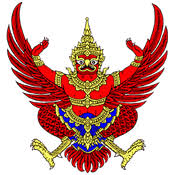Chapter 11 Severance Pay
About TMA Group
TMA Group is a professional company focusing on local recruitment and corporate consulting in Thailand, dedicated to providing one-stop services including recruitment, financial management, tax disposal, legal consulting, personnel management, etc. for enterprises and individuals. If you need more advice on investment in Thailand, please feel free to contact us.
Chapter 11 Severance Pay
Section 118.An Employer shall pay Severance Pay to an Employee who is terminated as follows:
(1) if the Employee has worked for an uninterrupted period of one hundred and twenty days but less than one year, he or she shall be entitled to receive payment of not less than his or her last rate of Wages for thirty days, or of not less than his or her Wages for the last thirty days for an Employee who receives Wages on a piece rate basis;
(2) if the Employee has worked for an uninterrupted period of one year but less than three years, he or she shall be entitled to receive payment of not less than his or her last rate of Wages for ninety days, or of not less than his or her Wages for the last ninety days for an Employee who receives Wages on a piece rate basis;
(3) if the Employee has worked for an uninterrupted period of three years but less than six years, he or she shall be entitled to receive payment of not less than his or her last rate of Wages for one hundred and eighty days, or of not less than his or her Wages for the last one hundred and eighty days for an Employee who receives Wages on a piece rate basis;
(4) if the Employee has worked for an uninterrupted period of six years but less than ten years, he or she shall be entitled to receive payment of not less than his or her last rate of Wages for two hundred and forty days, or of not less than his or her Wages for the last two hundred and forty days for an Employee who receives Wages on a piece rate basis; or
(5) if the Employee has worked for an uninterrupted period often years but less than twenty years, he or she shall be entitled to receive payment of not less than his or her last rate of Wages for three hundred days, or of not less than his or her Wages for the last three hundred days for an Employee who receives Wages on a piece rate basis;
(6) if the Employee has worked for an uninterrupted period of twenty years or more, he or she shall be entitled to receive payment of not less than his or her last rate of Wages for four hundred days, or of not less than his or her Wages for the last four hundred days for an Employee who receives Wages on a piece rate basis.
Termination of employment under this Section means any act where the Employer refuses to allow an Employee to work without paying Wages on expiry of Contract of Employment or any other cause, and includes where the Employee does not work and receives no Wages on the grounds that the Employer is unable to continue he undertaking.
The provisions of paragraph one of this Section shall not apply to an Employee whose employment is for a definite period and the employment is terminated at the end of that period.
Employment for a definite period under paragraph three is allowed for employment in a specific project which is not the normal business o trade of the Employer and requires a definite date to commence and end the work, or for work which is occasional with a definite ending or completion, or for work which is seasonal and the employment is made during the season. Such work shall be completed within a period not exceeding two years and the Employer shall make a written contract with the Employee at the beginning of the employment.
Section 118/1 Retirement as agreed between an Employer and an Employee, or as stipulated by the Employer shall be deemed as the termination under Section 118 paragraph two.
In case there is no agreements or stipulation of retirement, or there is an agreement or stipulation of retirement age of over sixty years old, an Employee who is over sixty years old is entitled to notify his/her intention of retirement to an Employer. The notification shall be valid upon the completion of thirty days from the date of the notification of retirement, and the Employer shall pay the severance pay to the retired Employees in according to Section 118 paragraph one.
Section 119. An employer may not pay severance pay to an employee when employment is terminated upon any of the following conditions:
(1) performing his/her duty dishonestly or intentionally committing a criminal offence against the Employer;
(2) willfully causing damage to the Employer;
(3) committing negligent acts causing serious damage to the Employer;
(4) violating work rule, regulation or order of the Employer which is lawful and just, and after written warning having been given by the Employer, except for a serious case with no requirement for the Employer to give warning.
The written warning shall be valid of not exceeding one year from the date when the employee commits the offence;
(5) absenting himself/herself from duty without justifiable reason for three consecutive working days regardless of whether there is holiday in between;
(6) being sentenced to imprisonment by a final court judgment.
In item (6), if the imprisonment is for offences committed by negligence or a petty offense, it shall be the offense causing damage to the Employer.
Upon termination of employment without severance pay under paragraph one, when the Employer fails to specify the fact which is a cause of termination in a letter of termination of, employment or fails to inform the cause of termination to the employee at a time of termination of employment, the Employer cannot afterwards claim for such cause.
Section 120.Whereas an Employer relocates an establishment to another place and other place of an employer, the Employer shall put an announcement post in advance at a place where an establishment locates, in open and conspicuous location for a continuous period of not less than thirty days before the date of relocation. The announcement shall clearly state to understand which employees shall be moved to where and when.
Whereas an Employer fails to inform an Employee in advance under paragraph one, the employershall pay a special severance pay in lieu of advance notice to the employee who refuses to relocate to the new place in an amount equivalent to thirty days pay at the latest wage rate, or equivalent to the wages of the last thirty days for the employee who receives wages based on the piece rate.
If any Employee considers that the relocation significantly affects the ordinary way of living of an employee or his/her family and the Employee refuses to work at the new location, he/she shall inform in writing to the Employer within thirty days from the date of announcement post or from the date of relocation if the Employer fails to put the announcement under paragraph one. It is also determined that the employment is terminated at the relocation’s date by the Employer, so the Employee is entitled to a special severance pay of not less than the rate of severance pay for which he/she is eligible under Section 118.
The Employer shall pay special severance pay in lieu of advance notice under paragraph two or severance pay under paragraph three to the Employee within seven days from the date when the Employer terminates the contract.
Whereas the Employer disagrees with a reason of the employee under paragraph three, the Employer is entitled to lodge a complaint to the Labour Welfare Committee within thirty days from the date of receiving the written refusal.
Section 120/1. When it is determined by the Labour Welfare Committee about the complaint under Section 120 paragraph five that the Employee is entitled to Special Severance Pay in lieu of advance notice or Special Severance Pay, the Labour Welfare Committee shall issue an order in writing to the employer to pay Special Severance Pay in lieu of advance notice or Special Severance Pay, as the case maybe, to the Employee within thirty days from the date when the Employer has acknowledged such order.
When it is determined by the Labour Welfare Committee that the Employee is not entitled to Special Severance Pay in lieu of advance notice or Special Severance Pay, as the case may be, the Labour Welfare Committee shall issue a written order and communicate to the Employer and the Employee.
Consideration and the issuance of an order by the Labour Welfare Committee shall be finished within sixty days from the date of acknowledgement of the order, and shall inform the Employer and the Employee within fifteen days from the date of order’s issuing.
The order of the Labour Welfare Committee shall be final, unless the Employer or the Employee appeals against the order to the court within thirty days from the date of acknowledgement of the order. Where the Employer is a party who bring the case to the court, the Employer shall deposit a security with the court in equal to an amount to be paid by the order so as to further proceeding of the case.
In delivering the order of the Labour Welfare Committee, Section 143 shall be applied mutatis mutandis
Section 120/2.Where the Employer appeals against the order of the Labour Welfare Committee to the court, and the Employer has compiled with the judgment or the order of the court, the criminal prosecution against the Employer shall be extinguished.
Section 121. Whereas an Employer contemplates termination of employment as a result of the reorganisation of an undertaking, production line, sale or service due to the adoption of machinery or the change of machinery or technology which causes a reduction of the number of Employees, Section 17 paragraph two shall not be applied, and the Employer shall notify the Labour Inspector and the Employees in advance of not less than sixty days before the date of contemplated termination, giving the date of the contemplated termination, the reasons for termination and a name list of the Employees.
Whereas the Employer fails to notify in advance an Employee contemplated to be terminated, or has notified an Employee of less than the period prescribed under paragraph one, apart from the Severance Pay to be paid under Section 118, the Employer shall also pay Special Severance Pay in lieu of advance notice equivalent to the Employee’s last rate of Wages for sixty days, or an amount equivalent to the Employee’s Wages for the last sixty days to an Employee who is paid on a piece rate basis.
Whereas Special Severance Pay in lieu of advance notice under paragraph two has been paid, it shall be deemed that the Employer has paid the remuneration in lieu of advance notice under the Civil and Commercial Code.
Section 122. Whereas the Employer terminates the employment of an Employee under Section 121 and such Employee has worked for uninterrupted period of more than six years, the Employer shall pay Special Severance Pay in addition to Severance Pay under Section 118of not less than the Employee’s last rate of Wages for fifteen days for each year of employment or of not less than the Employee’s Wages for the last fifteen days for each year of employment for an Employee who is paid on a piece rate basis. The total Severance Pay under this Section shall not exceed the Employee’s last rate of Wages for three hundred and sixty days, or the Employee’s Wages for the last three hundred and sixty days for an Employee who is paid on a piece rate basis.
For the purposes of calculation of Special Severance Pay, where a period of employment is less than one year, a fraction of the period of employment of more than one hundred and eighty days shall be counted as one year of employment.
TMA Consulting Management has been paying attention to the updating of information through newsletters for many years, but we do not assume any responsibility for the completeness, correctness or quality of the information provided. No information contained in this article can replace the personal consultation provided by a qualified lawyer. Therefore, we do not assume any liability for damages caused by the use or non-use of any information in this article (including any kind of incomplete or incorrect information that may exist), unless it is caused intentionally or by gross negligence.











